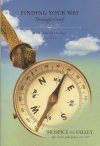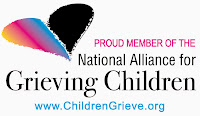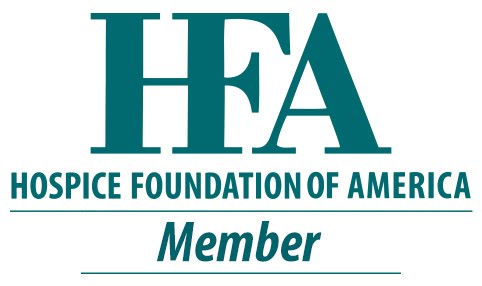Forgiveness is an act of the will, and the will can function regardless of the temperature of the heart. ~ Corrie Ten BoomA reader writes: I lost my mom six weeks ago. We had a distant and strange relationship my entire life as she favored my brother and made no qualms about showing it financially and otherwise. During my childhood there was much conflict in the house and she didn't protect me from it and wasn't remorseful. Dad had 7 heart attacks during my teen years and died when I was 19 (I'm 53 now). Our home revolved around chronic illness and tension and anger. I resented mom during my 20's and 30's for not protecting me from my father and brother and also had trouble with her obvious favoritism toward my brother which she expressed financially. I moved away many years ago and tried to create a more functional environment for myself and learn about love and support in other types of circles.
Monday, February 26, 2024
Sunday, February 25, 2024
Understanding and Managing Grief, February 18 - February 24, 2024
Whether it’s the diagnosis of an advanced cancer or a non-malignant condition such as dementia, heart failure or Parkinson’s disease, the psychological and emotional process of grief can begin many months or even years before the person dies. This experience of mourning a future loss is known as anticipatory grief. Not all mourning happens after bereavement – for some, grief can start years before the death of a loved one « The Conversation
Monday, February 19, 2024
Making Comparisons in Grief
For those of us already struggling with grief, however, such catastrophic events unfortunately can give rise to feeling guilty for feeling bad, as if we don’t have a legitimate right to mourn our own individual losses.
Sunday, February 18, 2024
Understanding and Managing Grief, February 11 - February 17, 2024
Milestone dates can catch us off guard and bring us to our knees. Preparing ahead of time can bring sweetness and meaning to the day. Create rituals that honor your loved one's life and legacy. Grieving Through Birthdays and Death Days « Psychology Today
Monday, February 12, 2024
In Grief: When An Ex-Spouse Dies
It is harder to accept the reality of loss if one is excluded from the dying process, restricted from the funeral rituals, inhibited from acknowledging the loss, or even given delayed news of the death. ~ Kenneth J. Doka
A reader writes: I’m not really sure how to explain how I feel after losing my ex-spouse a month ago—especially since he died the same day I was having major surgery. Consequently, I’ve had quite a few complications from my surgery since I started taking care of my two teenage boys and their grief the morning after surgery when I got the phone call about their father. The funeral (which was put on by his new young wife) was about the last four years of his life and didn’t talk about our boys or even mention those years of his life. The people who spoke at the funeral described a man that the boys and I didn’t even know. Most people (at work and friends) don’t know what to say to me because they feel that I have no emotions about this since he was my ex-husband. It’s an uncomfortable subject for my current husband as well.
Sunday, February 11, 2024
Understanding and Managing Grief, February 4 - February 10, 2024
Advances in neuroimaging are helping people better understand psychological reactions and responses to grief. Just as someone is changed by the arrival of a loved one into their life, they are altered by their departure. Grieving isn’t the problem: It is a solution, hardwired to help individuals navigate the pain of loss. What We Get Wrong About Grieving « Psychology Today
Monday, February 5, 2024
In Grief: When A Tragic Accident Takes A Mother's Life
Trauma is personal. It does not disappear if it is not validated. When it is ignored or invalidated the silent screams continue internally heard only by the one held captive. When someone enters the pain and hears the screams healing can begin. ~ Danielle BernockA reader writes: I'm 25 years old, and I lost my mother in a surprising, tragic accident about 1 week ago. I was devastated for days, but now I don't feel much of anything... I feel saddened and confused, and I don't really know what to do... nothing feels important - but it is as if I should be feeling much worse, I don't know how to put it any better than that. The funeral was yesterday, and almost 500 people showed up to say goodbye (people were standing in the hallway doors looking it was so full), which was pretty touching considering my mom hardly ever left the house (except for work and dog walking), but it was a lovely thing.
Sunday, February 4, 2024
Understanding and Managing Grief, January 28 - February 3, 2024
Megan Roantree lost both her dad and her best friend Shauna in her teens, now she reflects on the things it taught her about grief, and what she wishes she knew. What I Learned In Loss – & What I Wish I Knew About Grief « Stellar
A practical, technical or vocational major may have value in the job market, but it won’t provide the emotional or philosophical tools needed to cope with profound personal experiences like the death of a parent. For that, one needs a grounding in the humanities, which delve into the human experience, emotions and existential questions that arise during our most significant life events. How The Humanities Can Aid in Coping With Loss « Inside Higher Ed




























